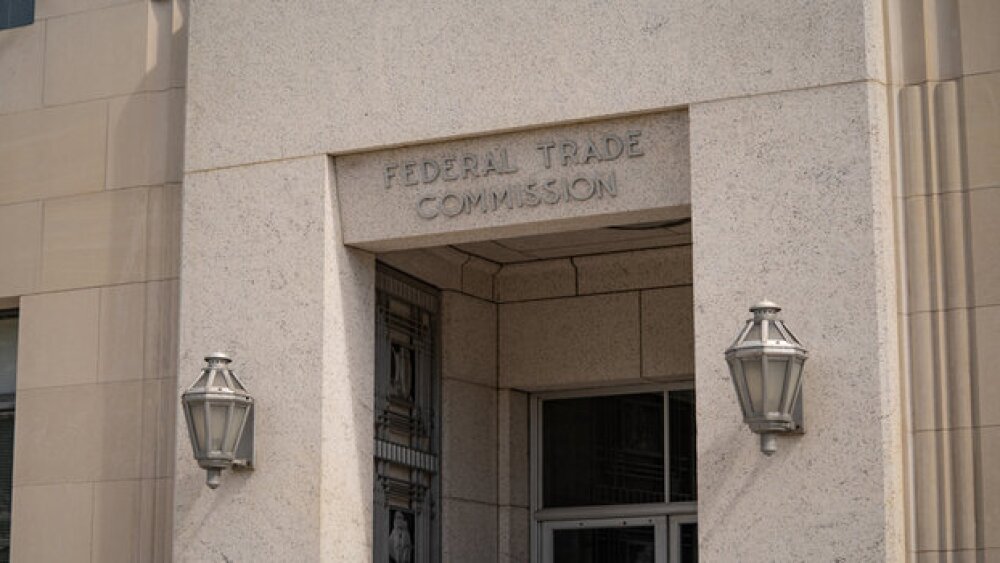The companies have filed their own suit against the Federal Trade Commission, claiming the FTC’s attempt to legally block their $28 billion merger is unconstitutional.
Pictured: FTC sign above a doorway/iStock, Evgenia Parajanian
In response to the Federal Trade Commission’s May lawsuit, Amgen and Horizon Therapeutics have filed their own counter suit, alleging that the FTC’s attempt to prevent their $28 billion merger violates the U.S. Constitution, according to a Law360 report.
In their counter suit, filed in an Illinois federal court, the companies wrote that instead of letting an Article III court decide on the matter “the FTC seeks to have the ultimate merits of its case adjudicated in an administrative proceeding that is riddled with constitutional defects,” Endpoints News reported.
“The FTC’s case is wholly novel and impossibly speculative,” the companies’ filing states.
Amgen and Horizon inked their multibillion merger in December 2022. At an initial value of $26.4 billion, it was easily the industry’s largest deal of last year.
A month later, however, government officials flagged the acquisition for potential anti-trust violations. Sen. Elizabeth Warren (D-MA) wrote to the FTC, bringing focus to the companies’ “records of anti-competitive business practices” which she claimed could potentially lead to higher medicine prices and prevent the entry of competitors offering more affordable alternatives.
The FTC eventually heeded Warren’s warnings and in May 2023 filed a lawsuit seeking to block the merger from pushing through—at least until after it has filed a complaint, which the agency also plans to adjudicate in an administrative proceeding.
“Rampant consolidation in the pharmaceutical industry has given powerful companies a pass to exorbitantly hike prescription drug prices, deny patients access to more affordable generics, and hamstring innovation in life-saving markets,” Holly Vedova, director of the FTC Bureau of Competition, said in a statement released at the time of the lawsuit.
In particular, the FTC is concerned that Amgen might provide “cross-market bundles or bundled rebates,” which could leverage its blockbuster assets to “secure favorable formulary placement” for Horizon’s rare disease therapies Tepezza (teprotumumab-trbw) and Krystexxa (pegloticase), the agency wrote in its court filing.
Amgen called these concerns “entirely speculative” in a statement released in response to the FTC’s lawsuit. “The medicines offered by Amgen and Horizon generally treat different diseases and patient populations, and there are no overlaps of competitive concern,” the company said.
In a June 2023 interview with BioSpace, Noah Brumfield, antitrust attorney with the firm Allen & Overy, agreed that the FTC might be on shaky ground with this lawsuit and that its challenge is unusual.
“They are saying that there is no competition between the parties and no supply-chain relationship, yet their combination would violate the antitrust laws. That’s a pretty novel approach when you consider the standards the courts apply to merger challenges,” Brumfield said.
Still, the FTC has strong backing from the government. Last month, six states—California, Illinois, Minnesota, New York, Washington and Wisconsin—joined the agency’s lawsuit and are seeking a preliminary injunction against the deal and a temporary restraining order against any other related transactions.
Tristan Manalac is an independent science writer based in metro Manila, Philippines. He can be reached at tristan@tristanmanalac.com or tristan.manalac@biospace.com.






